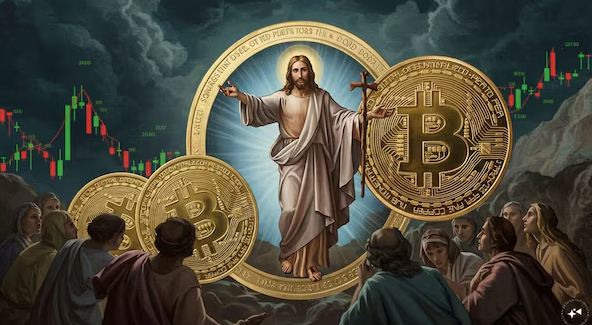A remarkable trend has emerged as thousands of individuals place bets on the anticipated return of Jesus Christ by the end of 2025. This surge in wagering is influenced by a theory predicting the Second Coming within the current year.
The Rise of Prophetic Wagering
Polymarket, a decentralized prediction platform, has become the hub for this unusual betting activity. Users are speculating on the likelihood of Jesus Christ’s return before December 31, 2025. As of now, over $500,000 has been staked on this event, with the majority betting against the occurrence. However, a notable minority has invested in the affirmative, purchasing ‘yes’ shares at approximately three cents each. Should the prophecy materialize, these bettors stand to gain significantly.

The Millennial Day Theory Explained
Central to this betting phenomenon is the ‘Millennial Day Theory.’ This concept posits that each millennium represents a day in a divine week, culminating in a seventh day of rest and peace. According to this theory, humanity is nearing the end of the sixth millennium, suggesting that the prophesied era of peace—and thus the Second Coming—is imminent.
Skepticism from the Scientific Community
Despite the enthusiasm surrounding this theory, it faces criticism from the scientific community. Anthropological evidence indicates that Homo sapiens have existed for approximately 300,000 years, far exceeding the 6,000-year timeline proposed by the Millennial Day Theory. This discrepancy casts doubt on the theory’s validity.
Historical Precedents of Prophetic Predictions
The anticipation of Jesus Christ’s return is not a novel occurrence. Throughout history, various individuals and groups have predicted specific dates for the Second Coming, none of which have come to fruition. These repeated inaccuracies highlight the challenges inherent in forecasting such events.
Religious Teachings on the Second Coming
Christian doctrine emphasizes that the exact timing of the Second Coming is known only to God. Scriptures caution against attempts to predict this event, suggesting that it will occur unexpectedly. This perspective raises ethical questions about the appropriateness of betting on such a sacred occurrence.
Public Reaction and Cultural Impact
The unexpected popularity of this prophecy-based betting market has sparked a variety of reactions across social media and religious communities. Some view it as a harmless expression of curiosity or even satire, while others see it as deeply disrespectful to religious beliefs. Critics argue that commodifying a sacred event like the Second Coming reduces it to mere spectacle and undermines its theological significance. On the other hand, proponents of open markets argue that prediction platforms like Polymarket simply reflect public sentiment and interest in world events—religious or otherwise. The phenomenon also highlights how technology and decentralized platforms are blurring the lines between faith, finance, and entertainment.
Meanwhile, the market continues to grow in value, drawing global attention. Whether or not the prophecy materializes, it’s clear that the intersection of belief and blockchain is creating new spaces for people to express their convictions—some earnest, some speculative, and some purely opportunistic.

Conclusion
While the notion of wagering on the return of Jesus Christ may seem unconventional, it underscores a broader human fascination with prophecy and the unknown. As 2025 progresses, the world watches with a mix of skepticism and curiosity to see whether this bold prediction will come to pass.

















